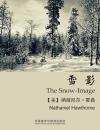Using English Traits as his point of departure, LaRocca explores the presence and significance of metaphors in Emerson. In doing so, he shows their centrality to Emerson’s thinking, but also reminds us of their centrality to all thinking. For example, purity metaphors abounded in nineteenth-century discourse in science, literature, and philosophy. Emerson picks up on this phenomenon, both to examine and undermine it. Why, for instance, would a faith in purity be philosophically dangerous? Purity is merely one of a host of metaphors that reveal problematical implications. Others include: blood, race, family, nation, genealogy, anatomy, and melancholy. By throwing light on Emerson’s scrutiny of the great metaphors of his age, LaRocca lays bare the allusive and anecdotal aspects of Emerson’s prose-the way it makes possible thinking on certain topics, and renews thinking of other issues. Metaphors are ubiquitous and yet-or, for that very reason-go largely unseen. We are all susceptible to blindness for metaphors. This book serves as a set of “reminders” of certain features of the natural history of our language.
《英国人的性格》讲到了英国的国土、种族,英国人的才能、习俗,他们的真诚、性格,说到了英国的贵族,他们的大学、宗教、泰晤士报,历史遗迹巨石阵,还有英国历史上的传奇人物等等,精彩纷呈。
Emerson visited England twice—in 1833 and again in 1847. On his first visit, as a young and unpublished writer, he travelled to meet the men whose works had inspired him, the giants of 19th century English literature. With Coleridge, 'old and preoccupied' in the year before his death, Emerson discussed religion and the merits of Sicily and Malta; in a desolate house in the Scottish hills he met Thomas Carlyle, the 'lonely scholar', whose humour and lively stories enchanted him and with whom he discussed Rousseau and Robinson Crusoe. With Wordsworth in London, they talked of America and Americans and Wordsworth recited three sonnets of poetry, just composed. On his second trip, having published his celebrated Nature and Essays, he had himself become famous and was feted by politicians, artists and aristocrats in salons and social gatherings across the country. In England, Emerson recognised the source of everything American-from the laws of society to the plot of a novel. Though he admired her triumphs he also presciently sensed the demise of a country weighed down by the 'drag of inertia'. And though mesmerised by her literature, he would later encourage American writers to forge a style all their own. Written during a decade of great flux for America, England and for Emerson himself, 'English Traits' illuminates Emerson’s visionary thought as much as it vividly portrays 19th century England.
- 书评 写书评
- 笔记
-
书评加载中...























 京公网安备 11010802032529号
京公网安备 11010802032529号
笔记加载中...